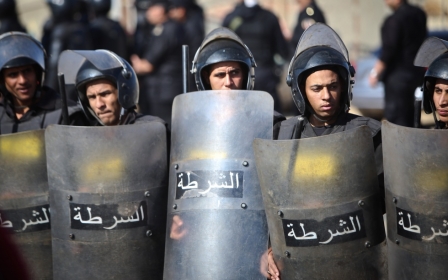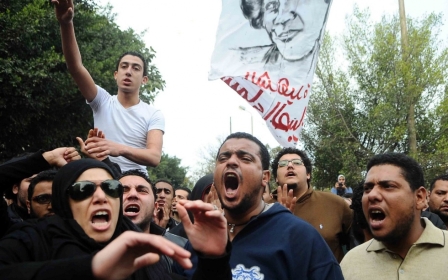Mubarak trial on corruption charges postponed

An Egyptian court on Saturday adjourned to 29 April the first session of the retrial of ousted president Hosni Mubarak and his two sons over corruption charges, a judicial source has said.
The trio stand accused of committing financial irregularities related to the government’s budget for the upkeep of presidential palaces.
Last May, Mubarak was sentenced to three years in jail while his two sons, Alaa and Gamal, were each slapped with four year jail terms after being found guilty of embezzling public funds allocated for the maintenance of presidential palaces and forging official documents.
The three were also ordered to pay back some 21mn Egyptian pounds (roughly $3mn) to the state and pay fines worth a total of 125.7mn Egyptian pounds (around $17mn).
But in January, Egypt’s Court of Cassation - the country’s highest appeal court - accepted an appeal lodged by Mubarak’s lawyers against the sentences and ordered a retrial.
The court also ordered the release of Mubarak’s two sons, Alaa and Gamal, pending trial in response to an appeal filed by their defence lawyer, Fareed al-Deeb.
Prosecutors had said that two former officials in Mubarak’s presidential office, along with two engineers from Egypt’s Arab Contractors construction company, had helped the defendants to illegally appropriate public funds, which were used to build, upgrade, and furnish their own private properties.
Following the retrial order, the court ordered the release of Mubarak, who now remains at a Cairo military hospital where he spent most of his time while awaiting multiple trials.
In a different trial, Mubarak was convicted in 2012 of issuing orders to kill peaceful protesters during the 2011 Egyptian uprising and was sentenced to life in prison. He appealed and was granted a new trial in 2013.
Almost 900 protesters were killed in the 18 day uprising that ended when Mubarak stepped down, but the trial was only concerned with the killing of 239 protesters, whose names were listed on court documents.
However, in November 2014, an Egyptian court threw out the case against Mubarak for conspiring to murder protesters due to a technicality and lack of jurisdiction.
The same court also acquitted Habib al-Adli, who was Mubarak’s interior minister, and six senior security commanders of conspiracy to murder protesters.
Middle East Eye propose une couverture et une analyse indépendantes et incomparables du Moyen-Orient, de l’Afrique du Nord et d’autres régions du monde. Pour en savoir plus sur la reprise de ce contenu et les frais qui s’appliquent, veuillez remplir ce formulaire [en anglais]. Pour en savoir plus sur MEE, cliquez ici [en anglais].




